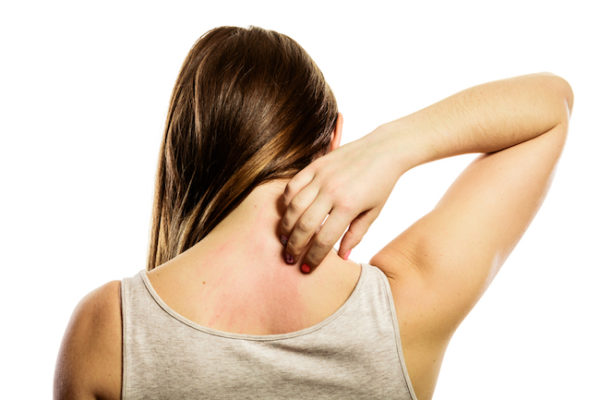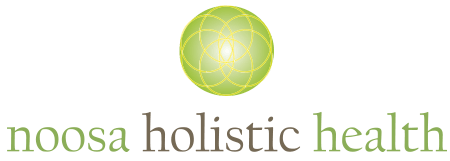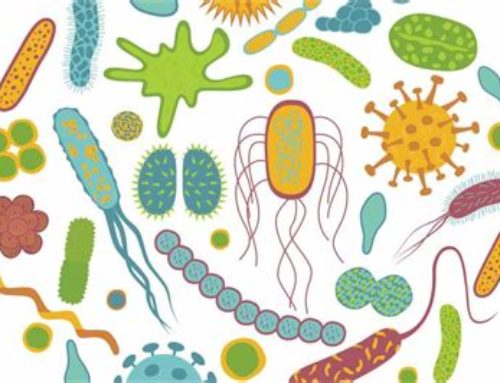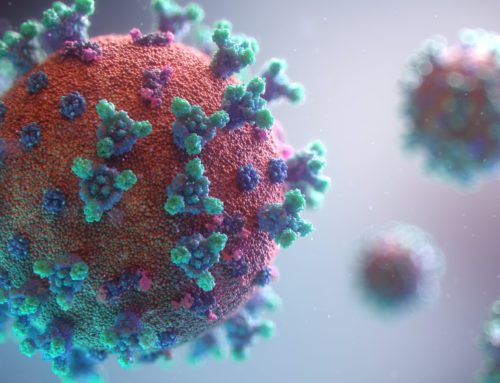Naturopath and nutritionist Amina Eastham-Hillier offers expert advice on how to ease eczema.
Western medicine typically treats eczema with topical corticosteroid creams to reduce inflammation. However, this is only a short-term measure as long-term use can thin the skin and suppress the immune system. Once the person stops using the cream, the eczema can reappear within days. Certainly, corticosteroid creams have a temporary place, e.g. when people have severe, painful eczema with bleeding, but to be effective, treatment needs to be from the inside.

Herbal Help
Herbal medicine is used initially to calm skin, but will also reduce the hyperactive immune response, soothe an irritable gut, and detoxify the body.
- Chamomile A vulnerary (wound-healing) herb that is anti-inflammatory when applied topically, and calming for gut irritation and nurturing for the nervous system when taken internally.
- Calendula Can be added to a vitamin E-based cream for its soothing and antibacterial properties.
- Echinacea Calms an oversensitive immune system since it is immune-modulating and anti- inflammatory. Recent studies show it benefits the adrenal glands.
- Baical skullcap This herb’s anti-allergic actions make it essential in treating eczema.
- Nettle leaf Another anti-allergic herb that many herbalists favour for dermatitis and urticaria.
- Gotu kola For its healing, anti-inflammatory properties and assistance in adrenal support.
- Burdock Excellent for chronic eczema, acne and psoriasis as it is depurative (blood cleansing).
Nutritional supplements can also help: Omega 3 essential fatty acids (EPA/DHA) from oily fish, for inflammation; vitamin E for immune response; evening primrose oil to relieve itching; vitamin A for the immune system and restoration of the skin’s protective barrier; vitamin B-complex for stress; vitamin C for collagen healing; vitamin D for immune response, obtained from 15 minutes of morning sun each day, or dietary supplements; and zinc for essential fatty acid metabolism and to promote the release of stomach acid.
While a dip in the salty ocean may sting initially, grit your teeth as it can work wonders for eczema – especially if it’s done daily. Alternatively, soak in a bath with some Epsom salts; finish by massaging skin with coconut or olive oil, or vitamin E cream. Even if you don’t suffer chemical sensitivities, avoid using soap it washes away protective natural oils, causing skin to become dry; in turn, this aggravates the eczema so it becomes dry, sore, and cracked. Scratching aggravates eczema. Herbal creams such as calendula applied topically can help prevent itchiness. Finally, it’s common for eczema to become worse before it improves. This can be a good sign – as long as you’re detoxing safely under the supervision of a professional naturopath.
Determine the triggers
- Allergies and food intolerances: Avoid dairy foods, sugars, gluten, and food additives such as colours, preservatives and flavour enhancers.
- Chemical sensitivities: Cosmetics and personal care products, cleaning products and gardening chemicals are some sources. Replace these with natural, chemical- free alternatives.
- Gut dysbiosis: with too many toxic bacteria and insufficient beneficial bacteria such as Bifidobacterium probiotics can help.
- Stress and anxiety: This increases inflammation and activates autoimmune responses.
- Tissue trauma: Skin rashes triggered by heat, or material rubbing on the skin.
- Intestinal parasites: such as Blastocystis hominis.
- Heavy metal toxins: such as mercury, aluminium, lead, cadmium.
- Testing – such as stool or hair analysis – may be necessary to identify triggers, followed by a detoxification program supervised by a qualified natural therapist.
Learn more about Naturopathy here.




Leave A Comment